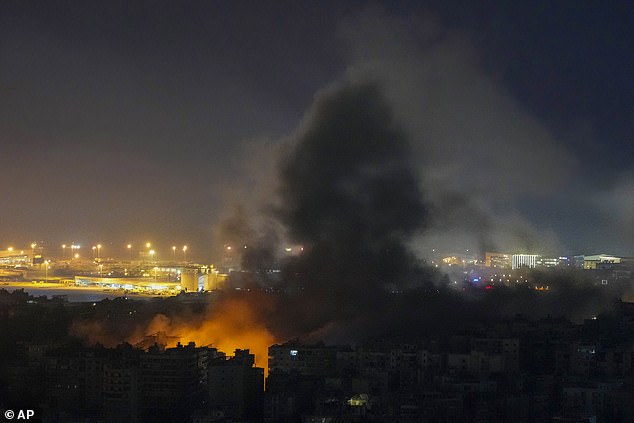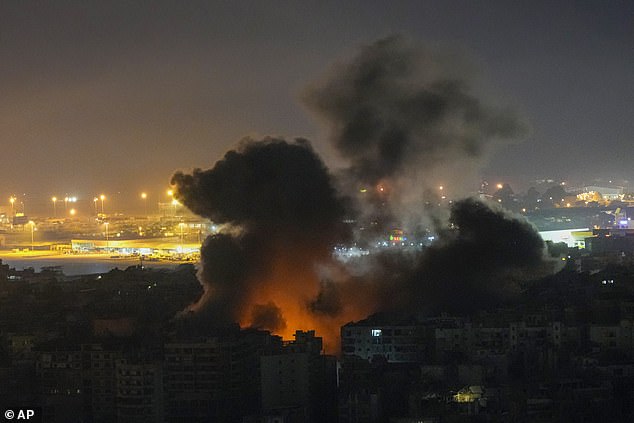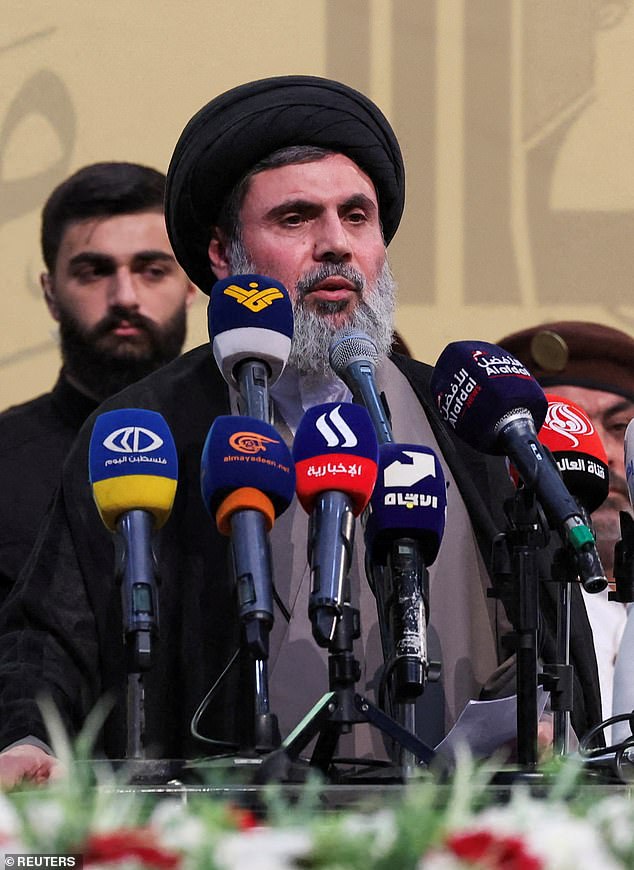Israel killed Hezbollah’s “next leader” in a fatal bombing raid on a hidden bunker in the latest blow dealt to the Iran-backed terror group.
Hashem Safieddine was killed in an Israeli airstrike in southern Beirut in early October, the Israeli military said today.
Safieddine was a powerful cleric within Hezbollah’s ranks and was expected to succeed Hassan Nasrallah.
According to Israel, Safieddine was killed during its airstrikes in early October in a southern suburb of Beirut.
Another 25 Hezbollah leaders were also reportedly killed during the airstrike.
Hashem Safieddine (pictured) was killed in an Israeli airstrike in southern Beirut in early October, the Israeli military said today.

Smoke rises following an Israeli airstrike in Dahiyeh, Beirut, Lebanon, this afternoon.
As head of Hezbollah’s executive council, Safieddine oversaw the group’s political affairs. He also served on the Jihad Council, where he helped manage military affairs.
His key role in the terrorist group made him a prime target for Israel.
Safieddine was groomed for the leadership role by Nasrallah before he was also killed in an Israeli precision airstrike in Beirut.
He wore a black turban that denoted his ancestry from the Prophet Muhammad, and his physical resemblance to Nasrallah – who led the Lebanese Shiite group for more than three decades – also marked him as a favorite for the succession.
Safieddine comes from a prominent Lebanese Shiite family and was born in the predominantly Shiite south of the country.
He studied at religious seminaries in the Iranian city of Qom before returning to Lebanon in the 1990s to take up leadership responsibilities in the group.

Flames and smoke rise into the sky after an Israeli airstrike in Dahiyeh, Beirut, Lebanon, today
Safieddine maintained strong ties with Hezbollah supporters in Iran.
His son, Rida, was married to the daughter of the late Iranian General Qassem Soleimani, head of Iran’s Revolutionary Guard Quds Force, until he was killed by a US drone strike in Baghdad in 2020.
His brother, Abdullah, is Hezbollah’s representative in Tehran.
As head of the executive council, Safieddine played a role that some compared to that of a government’s prime minister, responsible for a number of Hezbollah institutions involved in healthcare, education, culture and construction, and other activities.
He led efforts to rebuild Beirut’s southern suburbs controlled by Hezbollah following the group’s war with Israel in 2006, when large swaths of the area were devastated by Israeli airstrikes.


